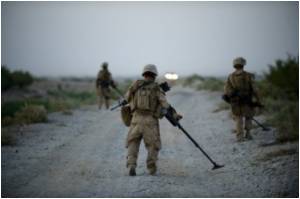
Alyssa J. Mansfield, Ph.D., M.P.H., then of the University of North Carolina at Chapel Hill, now of the National Center for Posttraumatic Stress Disorder in Honolulu, and colleagues examined electronic medical record data for outpatient care received at military facilities or through military health insurance between 2003 and 2006. The study included children ages 5 years through 17 years who had at least one parent serving on active duty in the U.S. Army. (Children of Reserve and National Guard personnel were excluded.) Researchers used the International Classification of Disease, Ninth Revision, to identify mental health diagnoses.
The study included 307,520 children, of whom 16.7 percent had a mental health diagnosis (most often for stress disorders, depression, behavioral problems, anxiety, and sleep disorders) during the study. More than 62 percent of parents were deployed at least once during the period, for an average of 11 months. The researchers found that mental health diagnoses were more common among children who had a parent who was deployed at least once for military operations in Iraq or Afghanistan. After adjusting the data for age, sex and mental health history, they showed that the likelihood of a mental health diagnosis increased with increases in parental deployment length; other factors included older age groups and male sex. The strongest associations were for acute stress reaction and adjustment disorders, depressive disorders, and behavioral disorders, among the total of 6,579 mental health diagnoses observed in children of deployed parents.
"We observed a clear dose-response pattern such that children of parents who spent more time deployed between 2003 and 2006 fared worse than children whose parents were deployed for a shorter duration," write the authors. "Similar to findings among military spouses, prolonged deployment appears to be taking a mental health toll on children." They urge further research of this issue among other branches of the military as well as the National Guard and Reserves.
Source-Eurekalert















